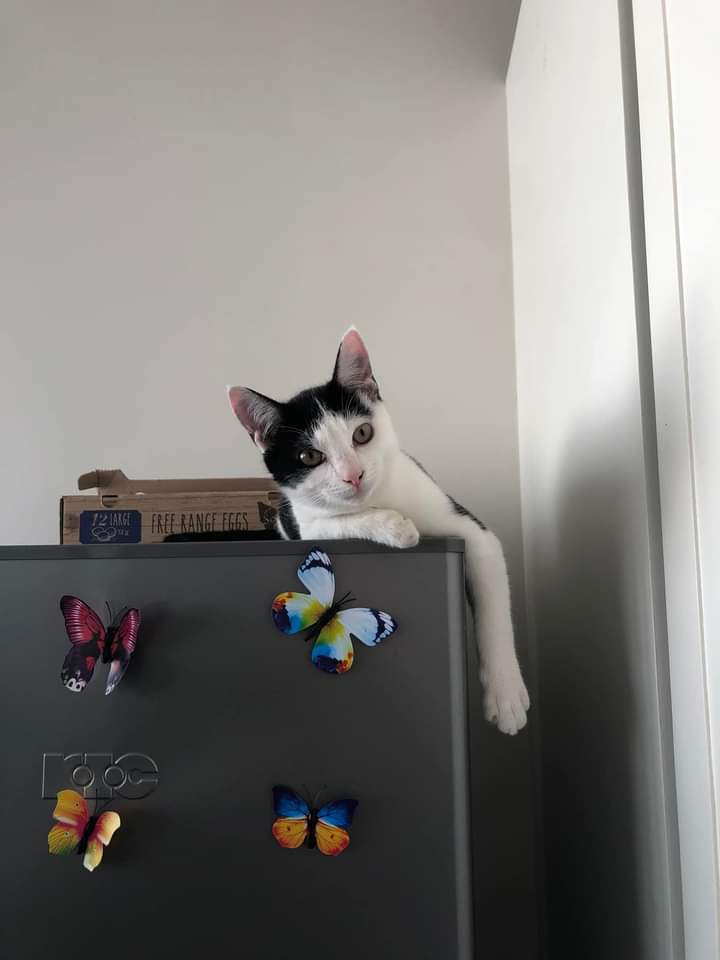By TOTO TSARNEBA
The Grahamstown Feral Cat Project will host a family fun walk on 16 June, starting at 9 am from the Ikhala Veterinary Clinic (3 Strowan Road).
Feral Cat Project chairperson Rochelle Fourie said participants could meet and greet some foster kittens at the event.
There’ll be some bigger animals in attendance, too – like horses – and books, cakes, tea and coffee, and pre-ordered curry bunnies will be on sale.
The event is co-hosted by the Ikhala Veterinary Clinic and Makana Vet Clinic, which both provide treatment for feral cats.
All monies raised will fund the TNR (Trap Neuter Return) programme and food, litter, and other essentials. TNR involves trapping unsterilised feral cats, spaying or neutering them, and returning them to the colony where they live the rest of their lives.
A female kitten can come on heat from four months old, and once pregnant, her gestation period is roughly two months. A cat can get pregnant again quickly after giving birth, making it possible for her to birth as many as five litters a year.
“Nursing her kittens will not prevent pregnancy, and your kitty’s next heat may occur just a few weeks after her kittens are born,” she said.
As the number of unwanted cats and kittens rises, this becomes a problem for humans and nature.
Healthy cats and kittens sent to animal shelters stand a risk of euthanasia as these shelters are full of unwanted animals and strays.
Animal shelters are battling to rehome animals, and feral cats and kittens are often unadoptable. Therefore, TNR is the most humane approach to controlling wild cat populations, allowing small colonies to live out their lives and preventing euthanasia of healthy cats and kittens.
Fourie said the project also gets called on in emergencies. For example, tiny kittens – not necessarily feral – have lost their mother or have been found in boxes or bags in bushes or on the side of the road.
She said these kittens require bottle feeding with specially formulated kitty milk which can only be purchased through a vet for R300 for 250g.
“As foster parents will tell you, 250g does not last very long when hungry tummies must be filled, but we must give these kittens the best possible start in life.”
She said once the kittens are old enough, they are introduced to wet food in sachets and special pellets. This food is purchased from their vet account or through cash donations. While they always hope to get their kittens adopted as soon as they are eight weeks old, the sad reality is that many kittens, especially the older ones, spend months in foster care. They need to continue feeding and caring for them out of their limited funds, which breaks the bank.
Fourie said their foster cats and kittens received regular vet care. Kittens entering foster care are immediately taken for a check-up and any necessary treatment, including deworming, vaccinations, and tick and flea treatment. “All sick or injured cats or kittens receive medical treatment until they are better,” she said.
The adoption fee is R550 per kitten, or R450 per kitten if you adopt two. This covers deworming, first inoculation, a vet book and obligatory sterilisation by six months.
A home check will be done before any adoption takes place.
Fourie said the Grahamstown Feral Cats Project depend solely on cash and food donations, money raised through fundraising and volunteers who use a lot of their own finances to give these cats and kittens a better life.
With insufficient funds, the project cannot continue reducing the number of unwanted kittens born.
Some foster kittens have been in their care since December 2021 – nobody has shown an interest in them. These kittens still require food and vet care, and funding is desperately needed.
Michelle shared the five freedoms for animals
- Freedom from hunger and thirst.
- Freedom from discomfort.
- Freedom from pain, injury or disease.
- Freedom to express normal behaviour.
- Freedom from fear and distress.
Fourie said all donations were gratefully accepted. “If one is making an electronic payment, please remember to include WILDCAT and your name as a reference so they can thank you.”
Donations can be made to the following accounts:
Makana Vet Clinic
FNB 62886213132
Cheque Account
Branch Code: 210717
Reference: “W/CAT” Your Surname
Proof of payment to Rochelle Fourie – Eastcapemultiservices66@gmail.com
Ikhala Veterinary Clinic
FNB 62737529191
Cheque Account
Branch Code: 250655
Ref: “W/Cat” Your Surname
Proof of payment to Rochelle Fourie – Eastcapemultiservices66@gmail.com
Please get in touch with Rochelle on 064 620 0831 to arrange collections of donations, or supplies can be dropped at one of the following:
Hoof and Hound – Peppergrove Mall
Suzi-Q – 31 High Street
All donations go to sterilisations, food and medical care for fosters. Occasionally there are costs for veterinary care of feral cats that are ill or injured.


